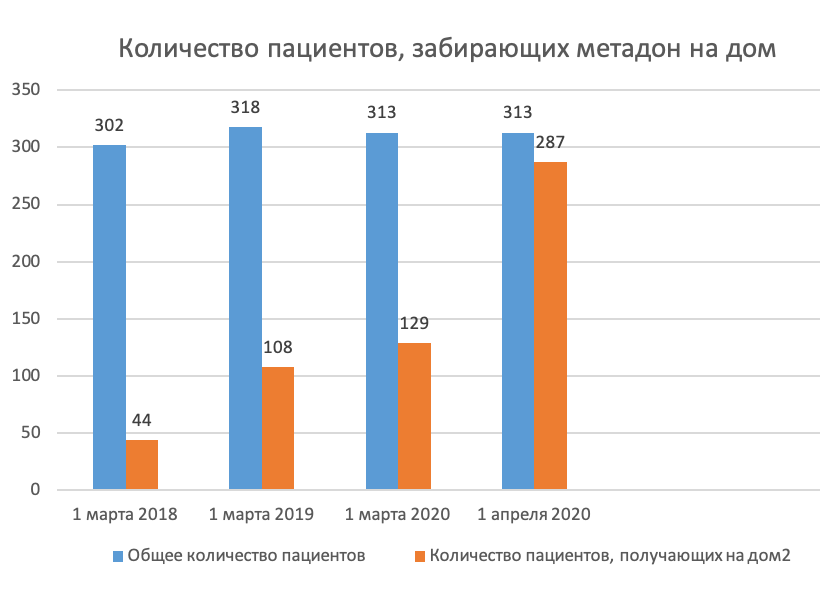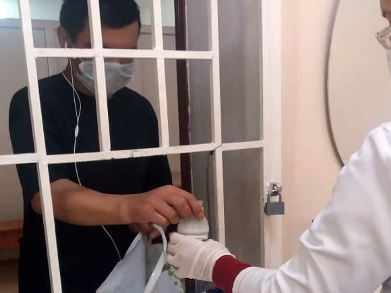For patients attending medication-assisted therapy (MAT) sites in the Kyrgyz Republic, taking home more than a three-day supply of methadone usually requires meeting eligibility criteria set by the Ministry of Health.
For example, the client should be on MAT for at least six months, the dosage of methadone prescribed must be more than 60 milligrams, the client should have negative surfactant tests, and the client should not have skipped their medication more than once in a month.
However, as part of COVID-19 preventive measures, all MAT clients in Kyrgyzstan are now permitted to take medication home while adhering to social distancing measures, thanks to ICAP’s recommendations to the Ministry of Health’s Republican Narcology Center (RNC).
At the Bishkek City Family Medicine Center Number One MAT site, a client expressed relief at being allowed to take home a five-day supply of methadone for the first time since starting their regimen. “This dosage increase is essential. I plan to take my methadone dose diligently so I can continue receiving the five-day medication just like others, even after quarantine has ended,” the client said.
After the Kyrgyz government declared a state of emergency on March 22, 2020, ICAP worked with the RNC to develop several COVID-19 protocols, including those to enable clients to take home methadone doses and to inform local governments and the Ministry of Internal Affairs about the distribution of the methadone to prevent any problems with law enforcement. The MAT clinics also provided all clients with reference and route sheets—signed sheets of paper clients showed to the police, army, and other law enforcement officials at roadblock posts during quarantine—allowing clients to visit the MAT clinic.
Other protocols included establishing hotlines and online forums for virtual medical consultations and supplying additional mobile phone units to medical workers at MAT sites, with support from the Global Fund and the United Nations Development Program.
“This has been a good initiative,” said Aibek Duishenaliev, supervisor for all MAT sites under the RNC’s jurisdiction. “ICAP’s recommendations came at an opportune time and really considered the interests of persons living with HIV who access MAT sites, while taking into account COVID-19 prevention activities and life circumstances,” he said.
Since the implementation of the COVID-19 protocols at MAT sites, the number of patients eligible for the five-day methadone prescription has increased from 41 percent to 90 percent.

Chart showing the increase of five-day methadone prescription eligibility among MAT clients
Other COVID-19 prevention activities and recommendations included the creation of posters, a distance training on COVID-19 prevention measures, and the purchasing and distribution of personal protective equipment.
All RNC MAT sites and ICAP pilot sites have implemented the COVID-19 guidance that ICAP developed.
“We hope that quick decisions helped to prevent COVID-19 infection among MAT patients,” said Ruslan Tokubaev, director of the RNC.
A global health leader since 2003, ICAP was founded at Columbia University with one overarching goal: to improve the health of families and communities. Together with its partners—ministries of health, large multilaterals, health care providers, and patients—ICAP strives for a world where health is available to all. To date, ICAP has addressed major public health challenges and the needs of local health systems through 6,000 sites across more than 30 countries.








